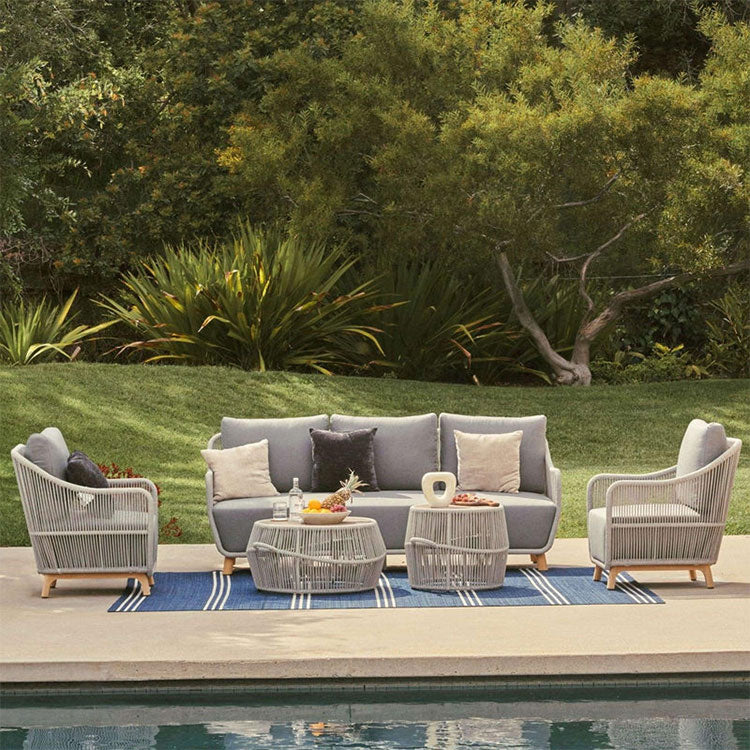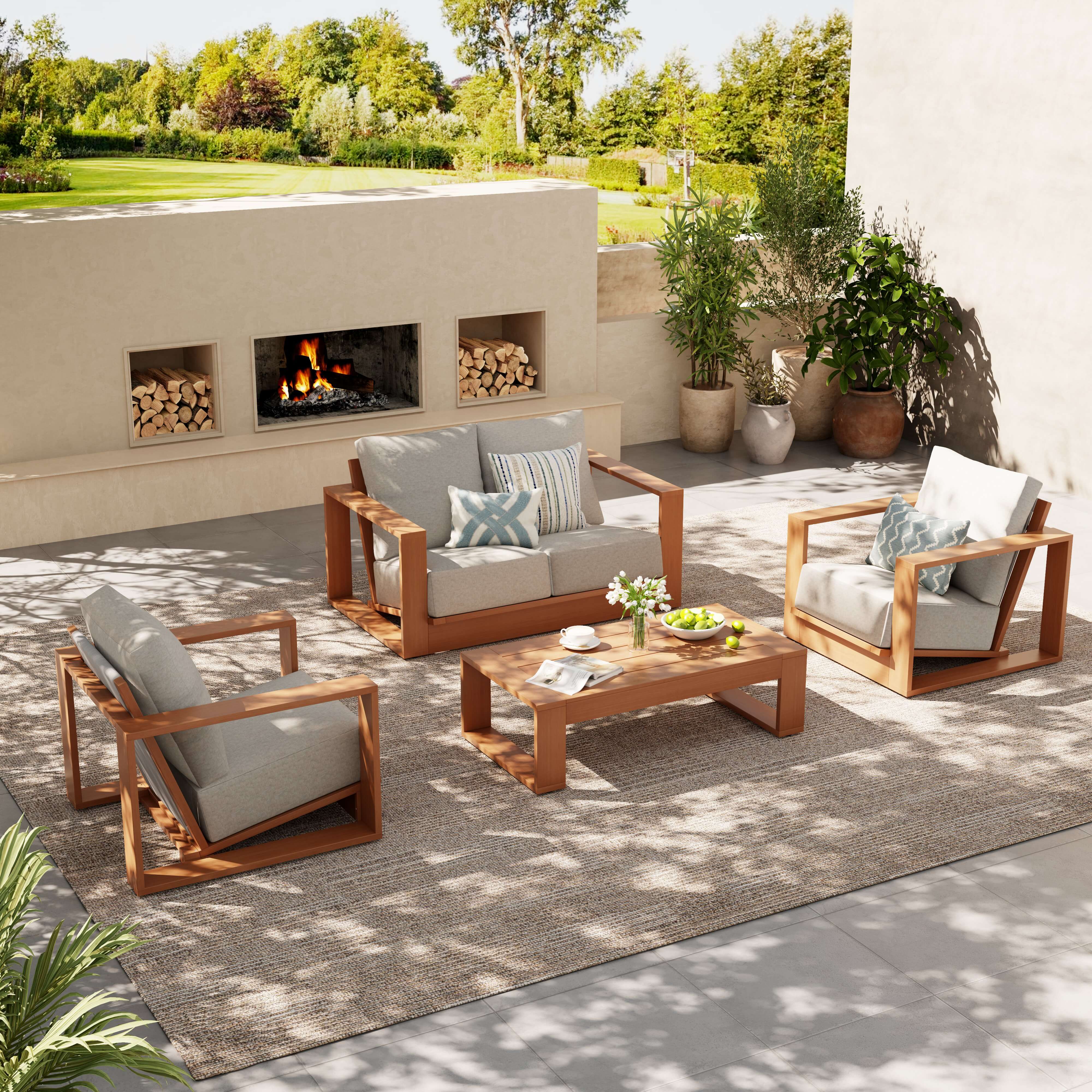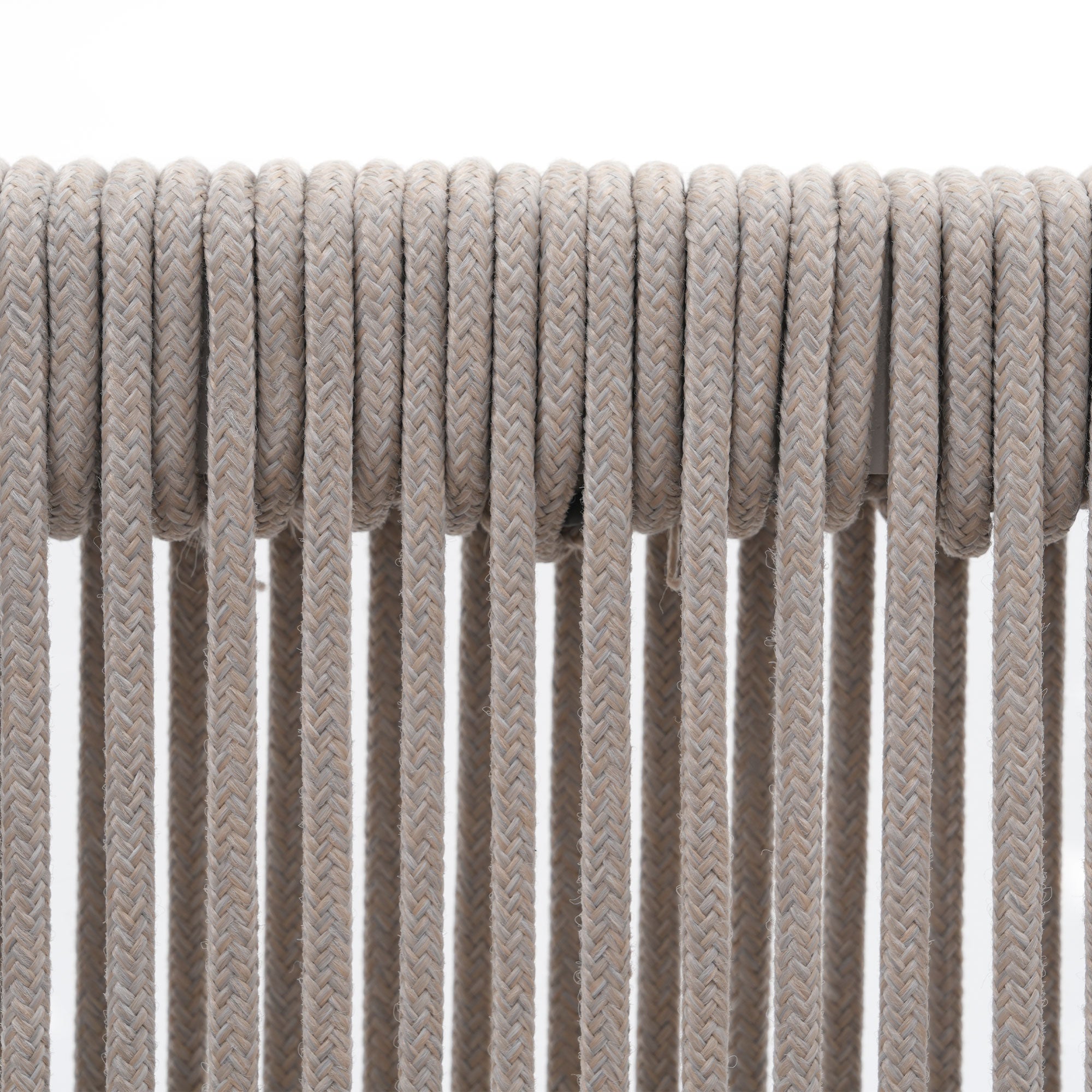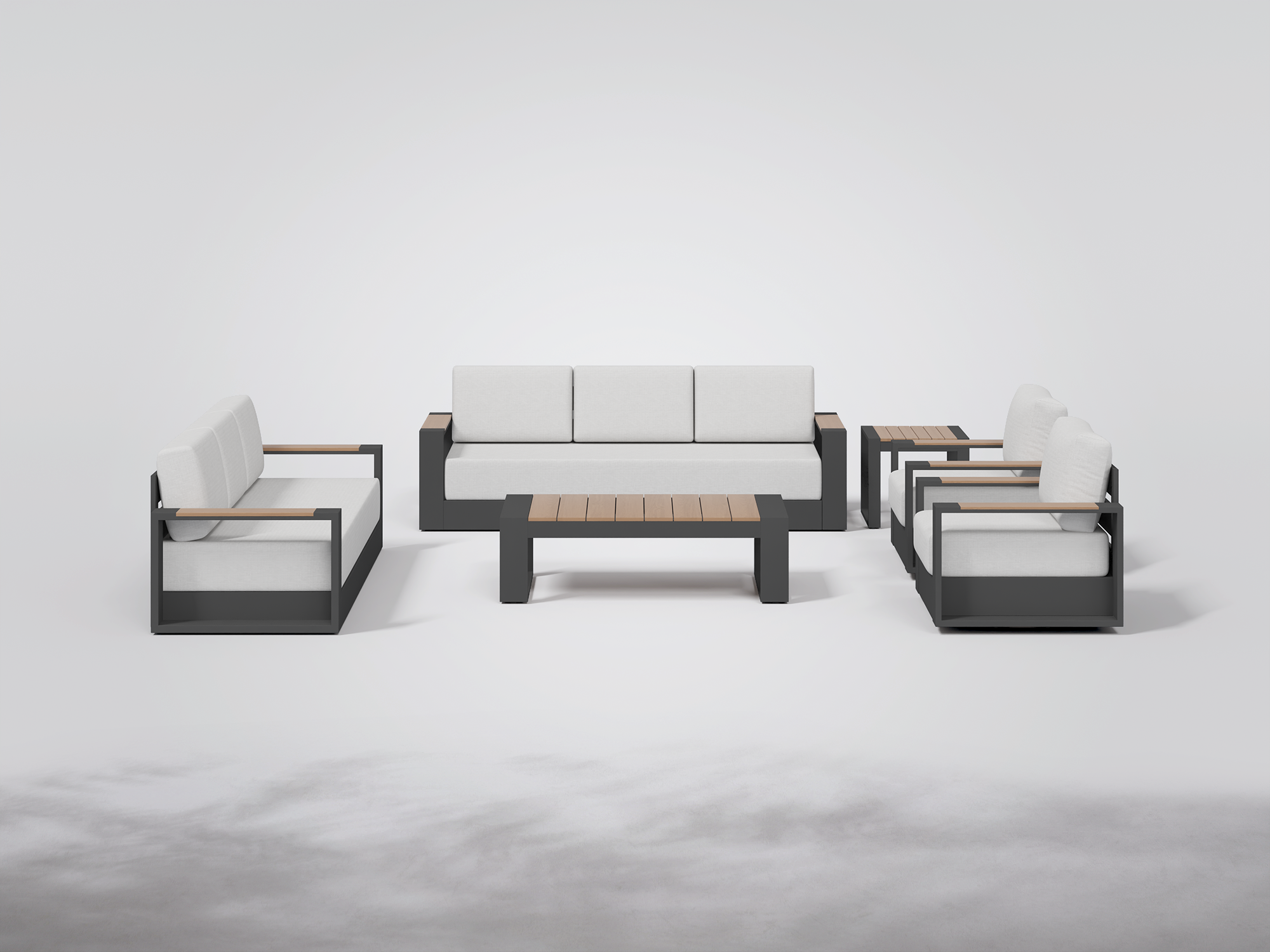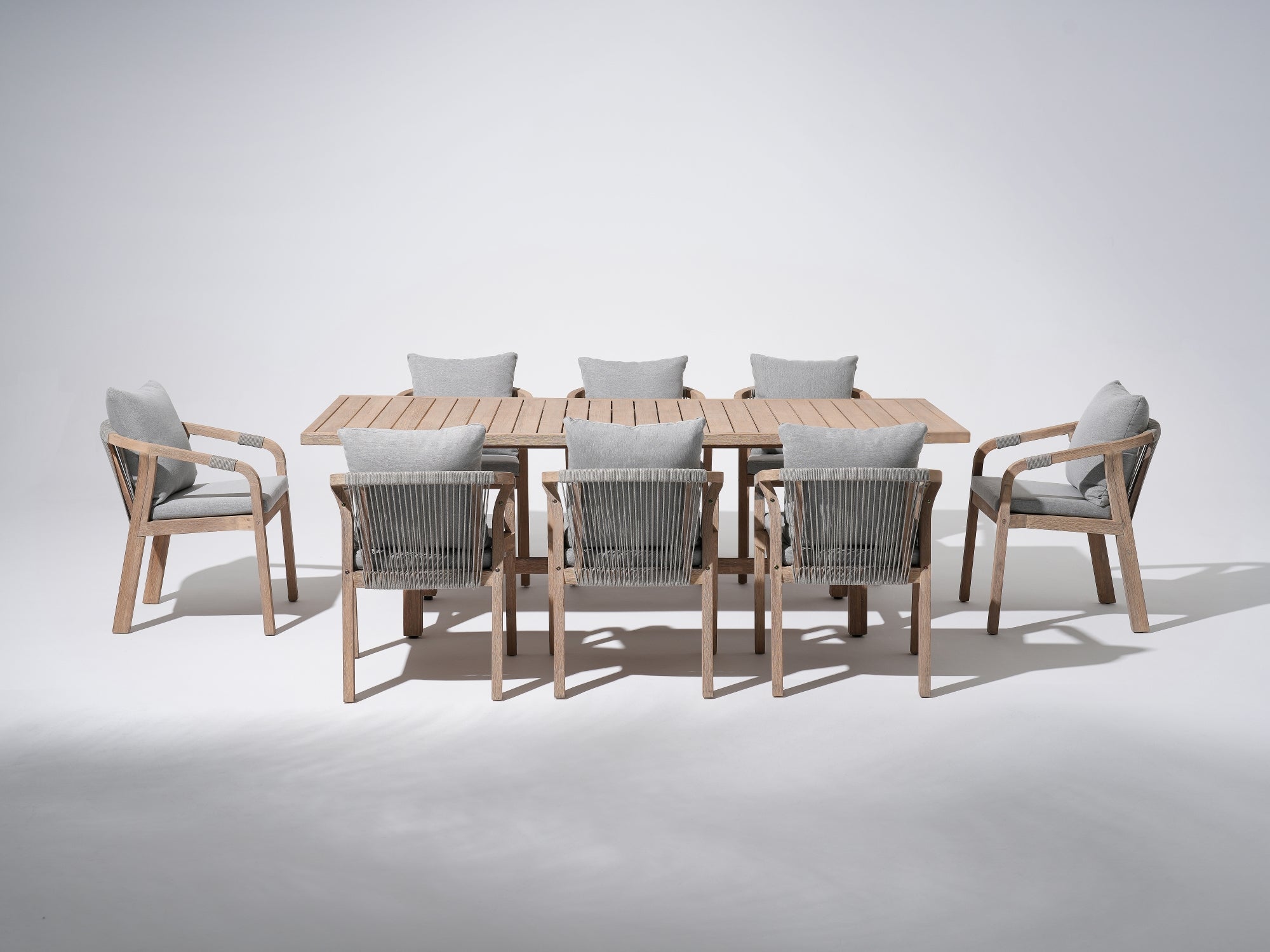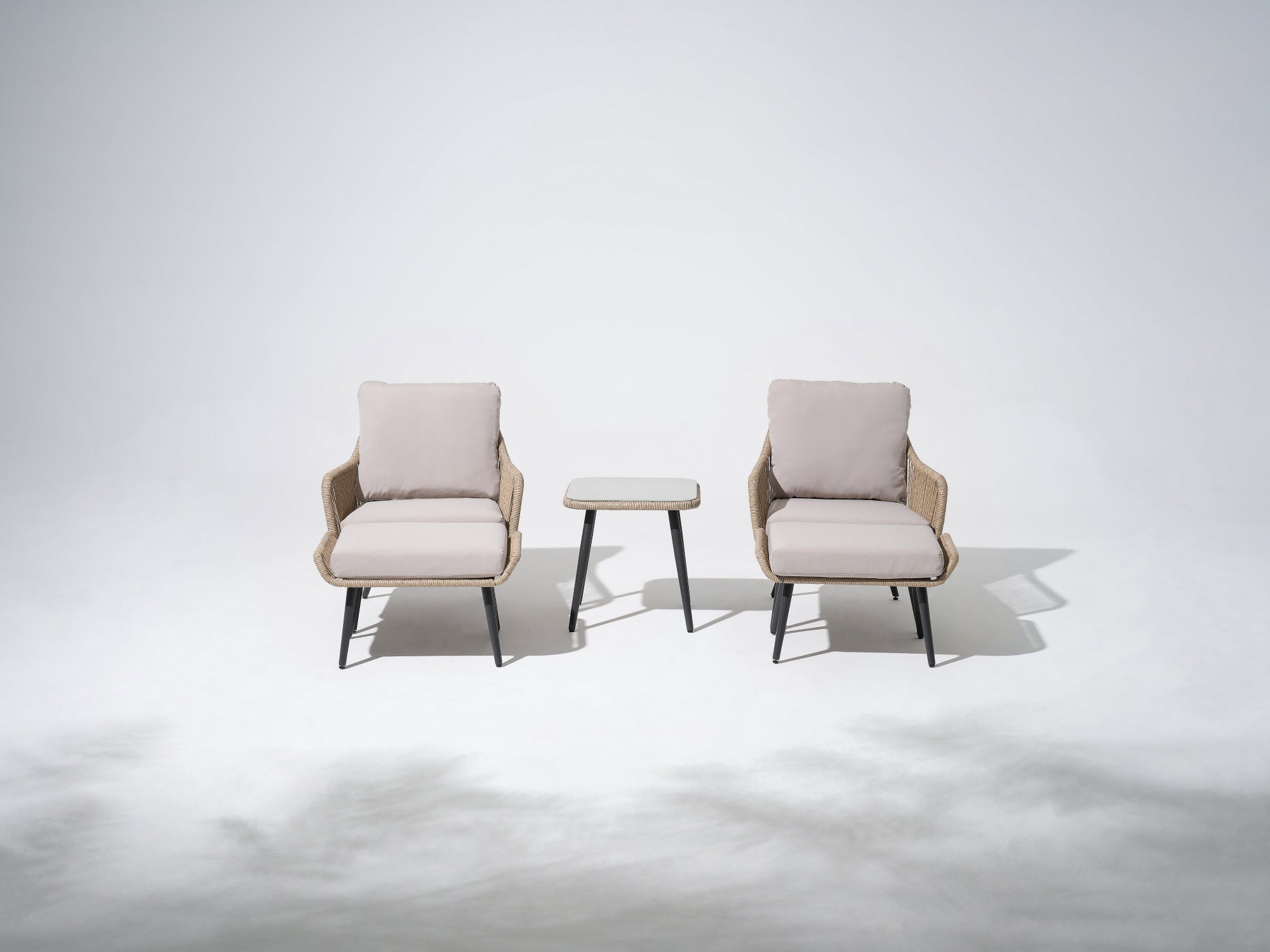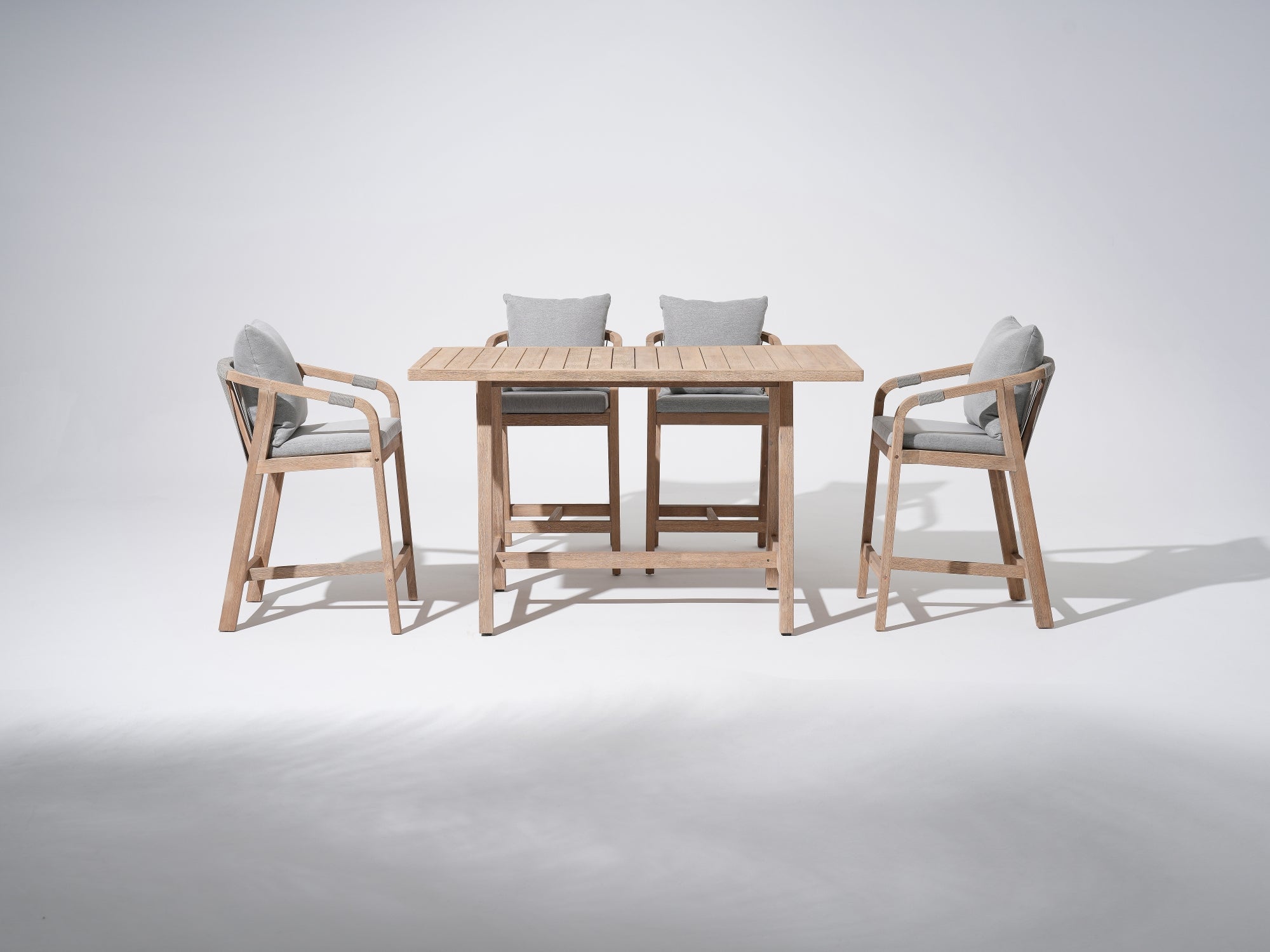Furnishing your outdoor space requires careful consideration of the material of your desired furniture. It’s no big deal if you want to extend your luxurious indoor style to the outside.
However, the outdoors exposes the furniture to more elements; hence, durability and maintenance aspects must be assessed. The furniture has to withstand climatic fluctuations, pets, kids, and other destructive external factors while maintaining its aesthetic appeal.
For that reason, this guide will delve into the commonly used materials for outdoor furniture. You will also find out the pros and cons and incorporate environmental sustainability in your journey to selecting the best.
Popular Materials for Outdoor Furniture
In this section, we’ll provide more details and expound on each common outdoor furniture material. After the compare-and-contrast moment of thorough selection, you can enjoy satisfactory functionality.

Wood
Wood has been used for years, even in ancient times, in making furniture and other handicrafts. It’s loved for its ability to bring a natural, exotic and rustic feel to any outdoor space. Plus, wood can be crafted and shaped into various furniture styles and designs, making it a versatile material choice.
Possessing natural beauty, wood material also complements the adjacent surrounding nature. In the case of a wooded patio or backyard, you’d love the smooth synergy between the wooden furniture and the outdoor area.
If you’re looking for a particular wood type, be it picturesque teak, cedar, or acacia, wood is a naturally durable material. In fact, it becomes more sturdy if it’s treated or maintained correctly. Keeping it looking its best, it’s easy to clean and recondition to serve you for years to come.
Of greatest importance, it’s an eco-friendly option and 100% green furniture material. Wood is biodegradable, and the manufacturing processes involved are often harmless to the environment.
However, if you throw caution to the wind, wood can easily decay or rot. Then, due to quality concerns and the use of real, untampered wood, most wood-made furniture is highly-priced. Not forgetting, some wood types demand more maintenance than others, therefore be keen to choose low-maintenance wood species.
Metal
Most people prefer metal for their furniture frames owing to its incredible durability. Under normal circumstances, it’s rare to find a metal piece that breaks easily due to a physical force. That makes metal a great option for outdoor use.
Aluminium, steel, and wrought iron are the most popular metallic materials, built to last and withstand extremely damaging conditions. They can handle moisture, sun intensity, and wind without yielding to deterioration. But to ensure ultimate longevity, metal is prone to corrosion, and necessary preventive measures should be taken.
Again, on the good side, metal furniture is mostly very low-maintenance. Just a wipe with a damp cloth is enough to keep it clean and pristine, enhancing its lifespan as long as it's sufficiently cared for.
One key advantage of metal outdoor furniture is its versatility. Metal can be moulded or cast into intricate designs unique to a metal material. The variety of styles offers several options to cater for people’s different decor tastes and preferences.
Then, most metal pieces are lightweight but cannot be carried away by wind. This enables you to move the furniture around and relocate it according to your outdoor layout. Besides that, you can place cushions or upholstery on it to create comfort and an inviting outdoor dining place.

Wicker/Rattan
Wicker and rattan furniture are primarily made from natural materials. Mostly, vine-like palm species are used, which are organic, flexible, and naturally aesthetic. Many homeowners love the durability package that comes with rattan's pliable nature and resistance to splintering.
This modern option transcends centuries and has a rich cultural history. Over the years, it has evolved, and artisans have discovered new designs that merge modernity with the traditional vibe. Wicker furniture uses material that can be woven into spectacular, intricate designs rarely found in other furniture types.
The only downside is the likelihood of the weaves fraying and the furniture decaying. However, your wicker furniture can last longer if protected with an impermeable coat or sealant. And covering it with waterproof furniture covers in times of heavy downpours and storage during off-seasons.
Plastic/Resin
In this modern era, with the current technological advancements and discoveries, plastic or resin is highly preferred as a suitable furniture material for the outdoors. This is merely because plastic or resin certainly requires no severe maintenance in the long run. It stays strong and resilient to most weather conditions, even if you live carefree with it.
As opposed to natural materials, plastic is water-resistant. It cannot rot or warp when exposed to rain or snow. Contrarily, most plastic materials can spoil when exposed to intense sun heat. They begin to fade, experience color change, and the strength deteriorates generally.
When looking for outdoor plastic furniture, check and aim for high-quality plastic. Also, when you land on the perfect choice, you’ll realize it is budget-friendly. It’s much easier to afford plastic outdoor furniture without breaking the bank.
Additionally, plastic, whether polyethylene or PVC, positively impacts the environment in the right hands. Avoid recklessly disposing of it and collect it for recycling, as plastic is recyclable. That old plastic furniture can produce a different useful product.

Composite Materials
Composite materials are ultra-modern and the most recent innovation in the manufacture of outdoor furniture. Just by the word composite, you can tell it's a heterogeneity of combining two or more materials into a single, more robust, durable material. This can be a blend of different wood, metal or recycled plastic materials.
Making composite furniture minimizes or eliminates the shortcomings of its individual, virgin counterparts and enhances its strengths and performance. By combining them, the furniture possesses the combined perks of all the constituents. Hence, it is either lighter, sturdier, more rigid, resistant to destruction, or highly low-maintenance.
Composite wood, composed of a mix of different wood species and wood-plastic composite materials, are the most popular. The need for a more eco-friendly and sustainable world necessitated the use and invention of composite materials.
Most composite furniture materials are obtained from reclaimed wood and recycled plastic, reducing waste generation. Buying outdoor furniture made of composite materials is a mindful way of keeping the environment alive.
Fabric Selection
When talking about outdoor furniture material, it isn’t just about the material of the furniture frames but also the upholstery. You also need to take into account the fabric material if you plan to place cushions on your outdoor furniture for additional comfort.
It doesn’t matter whether you choose acrylic, olefin, polyester, or canvas fabric. Whichever you select, the fabric should be designed specifically for outdoor use and resistant to stains and external elements. It should withstand fade, mold and mildew and stand firm against UV rays.
Not to mention, the right fabric makes maintenance easier and less daunting for householders. With optimal resistance to any damaging factor, dusting or vacuuming will suffice most of the time. Always follow the manufacturers' guidelines on the care tags for utmost care and maintenance.
Combination/Hybrid Materials
A furniture set may consist of a combination of several traditional materials. It is a modern trend in outdoor furnishing that includes combining, for instance, wood and metal or wicker and aluminium. It’s a sustainable approach that aims to incorporate eco-friendly materials.
To clarify further, a hybrid furniture set may include a metallic table paired with seats comprising wooden frames. Or you may find a wicker piece woven over metallic frames. Wood and wicker are more environmentally safe than metal as they’re naturally obtained.
At the same time, you combine the benefits of the materials in the mixed-material furniture. This technique tends to combine the naturality, timelessness, and rustic look of traditional materials with the durability and weather resistance of modern materials. It’s also a good way of saving costs if you don’t necessarily need the entire furniture set to be of one specific material.
Unfortunately, you may not achieve the aesthetic consistency you intended. Also, longevity is imbalanced as the materials in the mix don’t have the same lifespans. One may wear out earlier than the other, hampering long-term use together.

Environmental Impact and Sustainability
Apart from the industrial manufacturing processes, the durability of the furniture material greatly influences its environmentally sustainable nature. Topping up is the transportation consideration and disposal method once its lifetime ends.
Considering these significant aspects, furniture buyers make a well-informed decision on the most appropriate furniture material. Thus, you choose outdoor furniture that supports healthy environmental practices and promotes overall ecological safety.
Moreover, manufacturing companies are responsible for maintaining a “green” environment. They should prioritize environmental care from sourcing materials and manufacturing furniture to customer delivery. As consumers, we ought to buy from such eco-conscious furniture makers to enforce a positive change in the outdoor furniture industry.

Conclusion
Wrapping up, several materials can make outdoor furniture. While shopping, it is crucial to inspect and find out the exact material that crafted the furniture. Do your research and assess your choices for a fulfilling selection.


